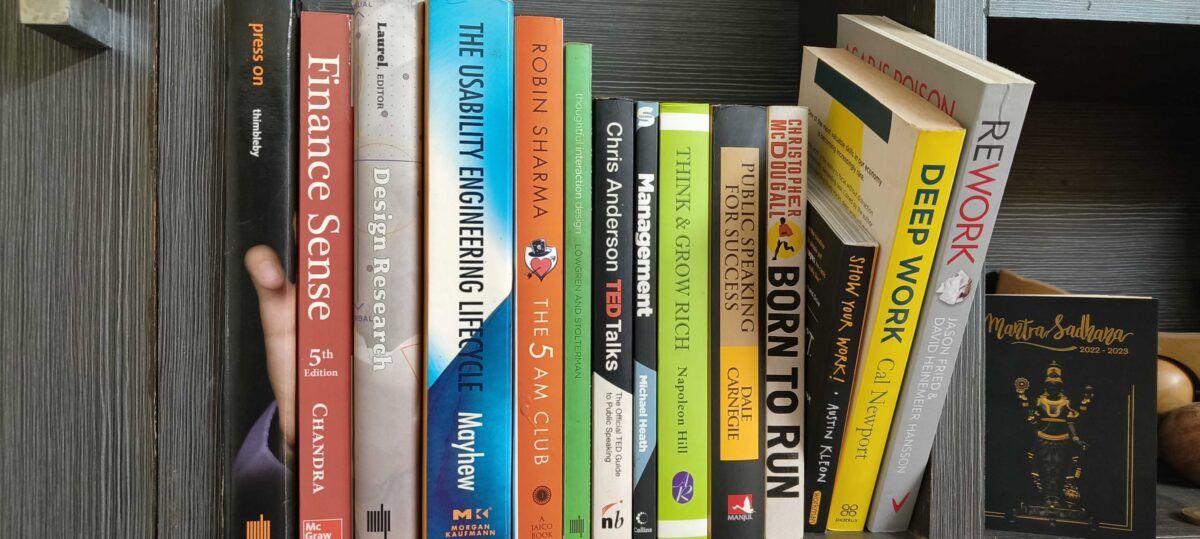Quoting the guru-disciple relationship, Om Swamiji shared HIS feelings, respect, and immense gratitude towards Naga Baba. In great detail, it moved all of us.
The reason I left for the Himalayas at the time was not that my body had been starving, but because my soul was desperate. The social interactions in the ashram drained me and when I would speak to people who sought my counsel, I felt like a fraud. Here I was sounding all wise and awakened without going through the tapas of sadhana.
The article by Swamiji is one of the best examples, in my view, of understanding the difference between commitment and attachment. The way Swamiji felt the restlessness for not discovering the truth, showed us how important it is to get DEEP into your subject/objective/mission to excel. Our thought processes and actions are affected by which sphere we are operating from.
I recently came across the book, Deep Work by Cal Newport. It has helped me a lot in taking my commitment sphere to the next level. It is a must-have and must-read for anyone who is looking to EXPERIENCE the results of DEEP work. It is becoming rare, as the author says throughout the book. Before I dive, this is inspired by @Prahalad post on why one should write and share book reviews.
Focus, laser-sharp focus?
Deep Work is a book that explores the idea of deep work – the ability to focus without distraction on a cognitively demanding task – and its importance in today’s world of constant distractions. The value of deep work is immense and Cal has provided much practical advice on how to slowly incorporate it into our daily routine.
One of the key ideas in the book is that deep work is becoming increasingly rare and valuable in today’s economy, as more and more jobs require complex problem-solving and critical-thinking skills. Newport argues that deep work is essential for achieving high levels of success and that it is becoming increasingly difficult to achieve in today’s world of constant distractions.
Why?
One of the key challenges that Newport discusses is the difficulty of saying no to distractions and interruptions. He argues that it is important to be selective about where you focus your attention and to be disciplined about blocking out distractions in order to make the most of your time.
How?
How to incorporate deep work into your daily routine? Good question. You can try the following strategies:
- Set aside dedicated blocks of time for deep work. This might involve setting aside a few hours each day for focused, uninterrupted work on a challenging task.
- Minimize distractions during these dedicated blocks of time. Turn off your phone, log out of social media, and close any unnecessary tabs or programs on your computer.
- Create a work environment that is conducive to deep work. This might involve finding a quiet, distraction-free space to work, or using noise-canceling headphones to block out external distractions.
- Incorporate regular breaks and leisure activities into your routine. This can help you stay focused and engaged when you are working on demanding tasks, and can also prevent burnout.
- Be selective about where you focus your attention, and be disciplined about blocking out distractions. This might involve saying no to interruptions and requests for your time, and setting clear boundaries around when and where you will be available to others.
- Adopting Pomodoro technique
Embrace Boredom
Newport argues that boredom is an essential part of deep work and that it is important to embrace boredom in order to do deep work effectively. By “embrace boredom,” Newport means that you should be willing to tolerate and even embrace feelings of boredom or discomfort when you are working on a challenging task.
He suggests that boredom is a natural and necessary part of the deep work process and that it is important to push through these feelings in order to focus and make progress on demanding tasks. Essentially, embracing boredom means being willing to tolerate discomfort and distraction in order to focus on the task at hand. (Does it sound like enjoying your meditation? Let me know)
My key takeaways from Deep Work
- Deep work is essential for achieving high levels of success, and it is becoming increasingly difficult to achieve in today’s world of constant distractions.
- To incorporate deep work into your daily routine, set aside dedicated blocks of time for deep work, minimize distractions, and create a work environment that is conducive to deep work.
- Incorporate regular breaks and leisure activities into your routine to help you stay focused and engaged when you are working on demanding tasks.
- To overcome the challenges of managing your time and attention in an age of constant distractions, be selective about where you focus your attention and be disciplined about blocking out distractions.
I highly recommend this book to everyone!
So how deep do you go?
Jai Shri Hari 🙏
If you are reading this line, I thank you for going through this post. You can read about my spiritual journey, so far and its impact and scale to measure. By Swamiji’s grace, yes, I could do the Sri Suktam Sadhana successfully. And I am so thankful to him, Sri Hari, and all the lovely people here on os.me including you! I am sure you love Swamiji as I and others do.









Comments & Discussion
16 COMMENTS
Please login to read members' comments and participate in the discussion.